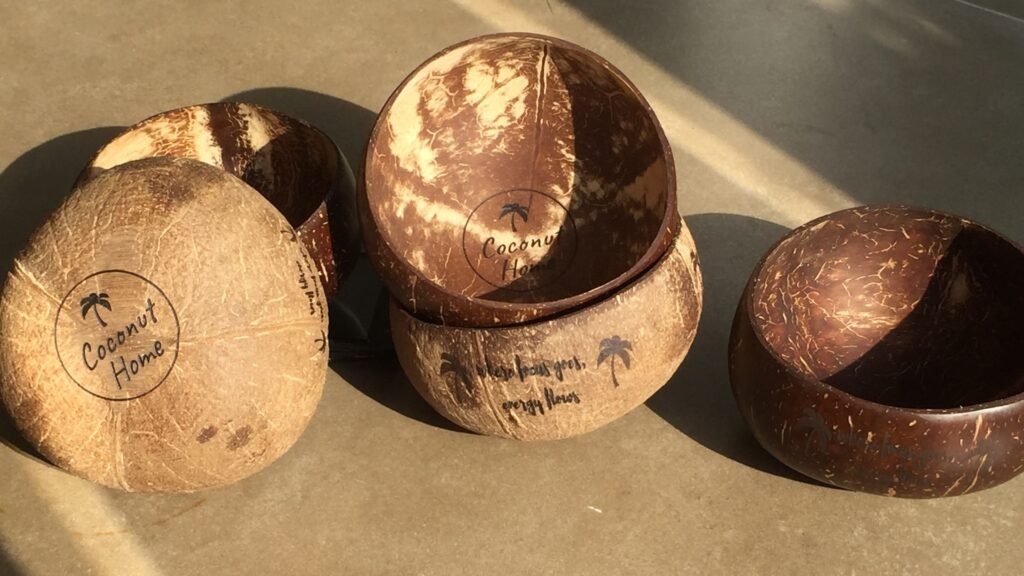Coconut bowls have emerged as a popular eco-friendly alternative to traditional tableware, appealing to environmentally conscious consumers and advocates of sustainable living. These bowls, crafted from discarded coconut shells, not only promote a zero-waste lifestyle but also add a unique aesthetic to dining experiences.
Sustainability and Environmental Impact
Coconut bowls are made from the shells of coconuts that would otherwise be discarded after the fruit is harvested for its meat and water. This process significantly reduces waste and provides a sustainable use for materials that would typically contribute to landfill accumulation. By choosing coconut bowls, consumers support a circular economy that emphasizes reuse and sustainability.
The production of coconut bowls also has a lower environmental footprint compared to conventional plastic or ceramic options. Unlike plastic, which can take centuries to decompose, coconut shells are biodegradable and compostable. Additionally, the manufacturing process for coconut bowls often involves minimal energy consumption, as many artisans use traditional handcrafting techniques rather than energy-intensive machinery.
Health Benefits
Coconut bowls are not only eco-friendly but also safe for food use. They are free from harmful chemicals commonly found in plastics, such as BPA (bisphenol A), making them a healthier choice for serving food. The natural properties of coconut shells help maintain the temperature of hot foods while providing a cool touch for cold dishes. This makes them versatile for various culinary applications, from smoothie bowls to salads.
Aesthetic Appeal
Beyond their sustainability credentials, coconut bowls offer a rustic charm that enhances any dining experience. Each bowl is unique in shape, size, and texture due to the natural variations in the coconut shells. This individuality makes them perfect for serving dishes in a stylish yet eco-conscious manner. Many consumers appreciate the organic look of coconut bowls, which can complement various table settings and themes.
Supporting Local Communities
Many coconut bowl producers are small-scale artisans in tropical regions where coconuts are abundant. By purchasing these products, consumers contribute to local economies and support fair trade practices. This not only helps artisans sustain their livelihoods but also encourages the preservation of traditional crafting techniques that may otherwise be lost in an increasingly industrialized world56.
Conclusion
Coconut bowls represent more than just a trendy kitchen accessory; they embody a commitment to sustainability, health, and community support. As more individuals seek ways to reduce their environmental impact while enjoying aesthetically pleasing products, coconut bowls stand out as an exemplary choice. By integrating these beautiful and functional items into daily life, consumers can make a positive statement about their values while enjoying their meals in style.
In summary, adopting coconut bowls is an easy step towards embracing a greener lifestyle while celebrating the beauty of nature’s bounty.
#coconutbowl #coconutshellbowl #coconutbowls #greenpeaceliving #eco

